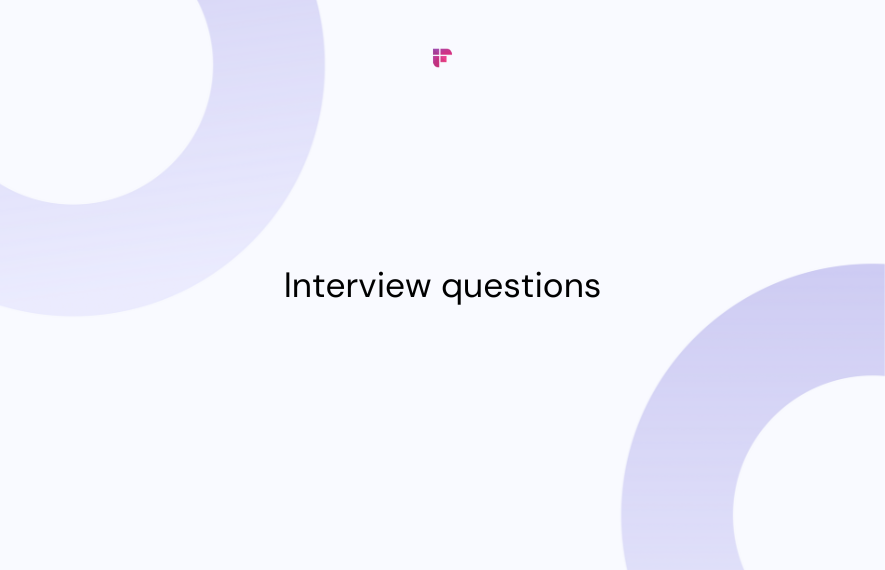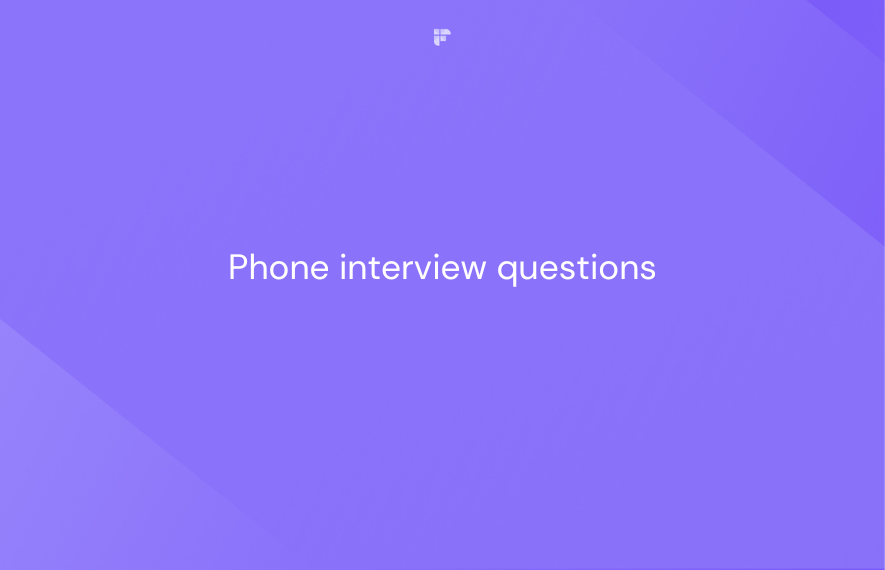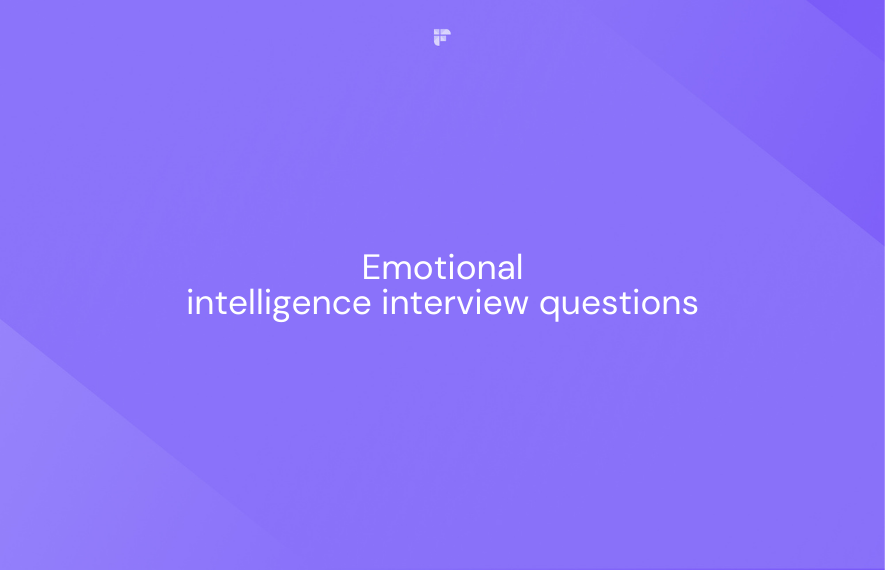
The hiring process is a pivotal aspect of organizational success, and finding the right candidates goes beyond simply ticking off boxes on a resume. To refine your candidate evaluation process, it's crucial to delve into strategic interview questions that provide a deeper understanding of a candidate's skills, mindset, and cultural fit.
In this comprehensive guide, we've compiled 20 must-ask strategic interview questions to help you go beyond the surface. These questions are not your run-of-the-mill "Tell me about yourself" queries; they're intended to uncover the qualities that make a candidate truly shine.
Career/role-oriented questions

These questions assess a candidate's knowledge and skills related to the specific requirements of the job. They are often used to evaluate a candidate's expertise in areas directly relevant to the position.
1. Can you share a specific example of a challenging project you've worked on? What were the obstacles, and how did you overcome them?
Why it's significant: This is more than just a peek into a candidate's past projects. We aim to assess their problem-solving skills, resilience, and ability to navigate challenges—critical attributes for success in any role.
What to look for in responses: Listen for a structured approach to problem-solving, evidence of adaptability, and teamwork. A candidate who conquered challenges gracefully will likely bring that same finesse to your team.
2. In your opinion, what is the most significant trend or development in our industry, and how do you stay informed about such trends?
Why it's significant: This question is your litmus test for a candidate's industry savvy. It's not just about what they know; it's about how they stay ahead in the game.
What to look for in responses: Seek a strategic understanding of industry trends and a proactive approach to staying informed. A candidate who's plugged into the industry's heartbeat is an asset.
3. How do you approach building and maintaining professional relationships with clients or key stakeholders?
Why it's significant: This interview question assesses a candidate's interpersonal skills and ability to foster positive relationships, which is critical in client-facing roles.
What to look for in responses: Look for effective communication, relationship-building strategies, and an understanding of the importance of client/stakeholder satisfaction. A candidate who values relationships contributes to a positive organizational image.
4. Describe a situation where you had to deal with a dissatisfied customer. How did you address their concerns and ensure customer satisfaction?
Why it's significant: Assessing a candidate's customer service and problem-solving skills is crucial, especially for client-facing roles.
What to look for in responses: Look for effective communication, empathy, and problem-solving skills in handling customer dissatisfaction. A candidate who prioritizes customer satisfaction contributes to the organization's reputation.
5. How do you prioritize innovation in your work, and can you share an example of a successful innovative initiative you've been a part of?
Why it's significant: Innovation is a key driver of success. This question helps evaluate a candidate's creativity, forward-thinking, and contribution to innovative solutions. It also gives you an idea of where their talents lie and helps visualize what role they'd fit.
What to look for in responses: Look for evidence of a candidate's proactive approach to innovation, creativity in problem-solving, and successful implementation of innovative ideas. A candidate who drives innovation contributes to organizational growth.
6. Tell me about a time when you had to inspire and motivate your team during a challenging period. What actions did you take?
Why it's significant: Understanding a candidate's leadership style and their ability to motivate others is essential for roles that involve team management.
What to look for in responses: Look for examples of inspirational leadership, effective communication during challenges, and actions taken to boost team morale. A candidate who can motivate others is a true asset to team dynamics.
7. How do you approach problem-solving when faced with incomplete or ambiguous information?
Why it's significant: In the real world, not every puzzle comes with all the pieces. This strategic question unveils a candidate's ability to navigate the fog and still find the path. This quality is crucial, especially in roles that require quick decision-making based on limited information.
What to look for in responses: Look for a systematic problem-solving approach, creativity in gathering information, and an ability to make informed decisions in uncertain situations. A candidate who's comfortable with ambiguity is valuable.
8. Can you share an experience where you successfully introduced a process improvement? What was the impact on efficiency or outcomes?
Why it's significant: Change is the only constant, and this question taps into a candidate's ability to proactively drive positive change within an organization.
What to look for in responses: Listen for initiatives, proposals, and measurable impacts of process improvements. A candidate who's not afraid to challenge the status quo is an innovation catalyst.
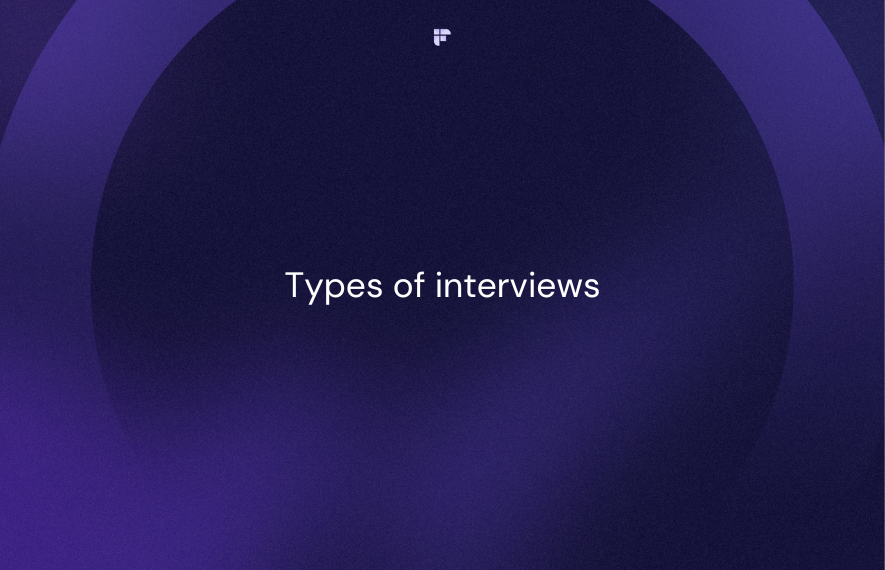
Behavioral questions

These questions focus on a candidate's past experiences and behaviors in various situations. They aim to assess how the candidate has handled specific challenges or achieved successes in the past.
9. What values do you believe are crucial for a successful team, and how do you embody these values in your work?
Why it's significant: This question explores a candidate's alignment with the organization's values and their commitment to upholding them in their daily work.
What to look for in responses: Look for alignment with the organization's values, examples of embodying these values in the workplace, and a commitment to a positive team culture. A candidate who shares and promotes organizational values enhances team cohesion.
10. What is your preferred communication style, and how do you ensure effective communication within a team?
Why it's significant: Communication breakdowns can be like quicksand for a team. This question helps you understand their ability to adapt communication styles for optimal team interaction.
What to look for in responses: Evaluate the candidate's self-awareness of their communication styles and instances where they've adapted for the team's benefit. Look for examples of clear, concise, and respectful communication.
11. Can you provide an example of a situation where you disagreed with a team member? How did you handle it, and what was the outcome?
Why it's significant: Conflict is inevitable, but how it's managed makes all the difference. This question helps assess a candidate's ability to navigate disagreements constructively.
What to look for in responses: Look for evidence of diplomacy, active listening, and a collaborative approach to resolving conflicts. A candidate who turns disagreements into opportunities for growth is a team player.
12. If you were allowed to lead a team, how would you foster a collaborative and inclusive work culture?
Why it's significant: Leadership is not just about giving orders—it's about creating an environment where everyone thrives. This interview question digs into a candidate's leadership style and team-building approach.
What to look for in responses: Seek answers highlighting communication, inclusivity, and a proactive stance on building a collaborative team. A candidate who envisions everyone's success is a true leader.
13. How do you handle feedback, and can you provide an example of a situation where feedback led to a positive change in your work?
Why it's significant: Assessing a candidate's receptiveness to feedback is crucial for a collaborative work environment and personal growth.
What to look for in responses: Look for a candidate who views feedback as a tool for improvement, actively seeks it out, and can demonstrate positive changes resulting from feedback. An openness to growth is essential.
14. Tell me about a time when you had to adapt to a significant change at work. How did you approach it?
Why it's significant: Adaptability is a must in today's dynamic workplace. This question uncovers a candidate's ability to roll with the punches and emerge stronger on the other side.
What to look for in responses: Keep an ear out for stories of flexibility, proactive adjustment to change, and a positive attitude toward embracing the unknown. A candidate who sees change as an opportunity is pure gold.
15. What role do diversity and inclusion play in your work? Can you provide examples of how you've contributed to a diverse and inclusive workplace?
Why it's significant: Evaluating a candidate's commitment to diversity and inclusion is integral for fostering a positive and inclusive work culture.
What to look for in responses: Look for evidence of efforts to promote diversity and inclusion, whether through initiatives, mentoring, or fostering a welcoming environment. A candidate who values diversity contributes to a rich organizational culture.
16. What is your approach to continuous learning, and how do you stay updated on industry best practices and emerging trends?
Why it's significant: Continuous learning is vital for professional growth. This question assesses a candidate's commitment to staying relevant and evolving with the industry.
What to look for in responses: Seek a genuine enthusiasm for learning, initiatives taken for self-improvement, and how they apply newfound knowledge to their work. A commitment to personal and professional development is essential.
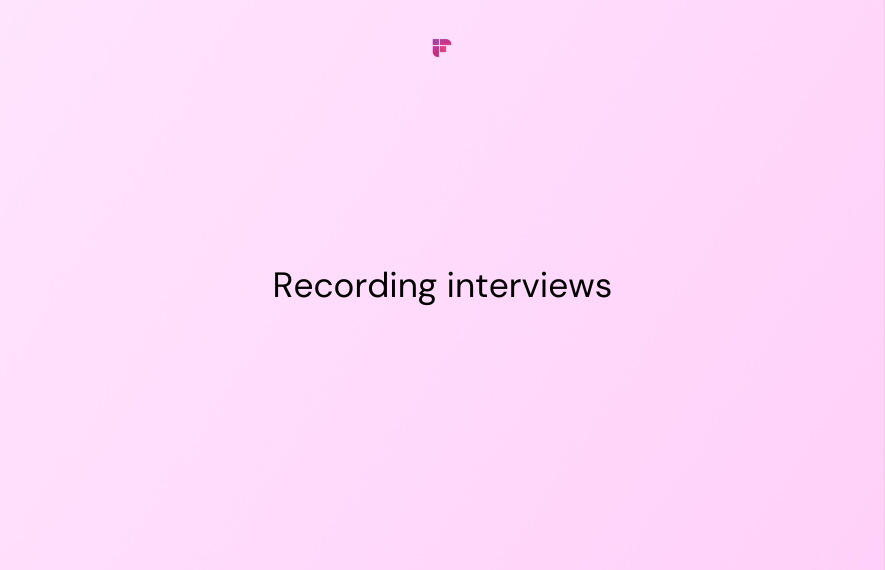
Situation-based questions

Situational questions present hypothetical scenarios that a candidate might encounter in the role they are interviewing for. The goal is to understand how the candidate would approach and handle certain situations.
17. In a situation where you have to manage competing priorities, how would you balance the needs of different stakeholders?
Why it's significant: Balancing acts are part of the job description for many roles. This interview question dives into a candidate's multitasking prowess and stakeholder management skills.
What to look for in responses: Pay attention to how the candidate prioritizes tasks, communicates with stakeholders, and makes decisions under pressure. A candidate who can juggle priorities without dropping the ball is a valuable asset.
18. You're in a situation where you have to meet a tight deadline. How do you prioritize tasks and ensure timely delivery?
Why it's significant: Evaluating time management and prioritization skills provides insights into a candidate's ability to handle pressure and deliver results efficiently, crucial for meeting deadlines in a fast-paced work environment.
What to look for in responses: Look for signs of effective task prioritization, a cool-headed approach under pressure, and, most importantly, a track record of meeting deadlines without sacrificing quality.
19. If you were tasked with introducing a new product or service to the market, what would be your approach?
Why it's significant: This question delves into a candidate's strategic thinking, market awareness, and ability to formulate and execute plans.
What to look for in responses: Look for evidence of market research, strategic planning, and an understanding of the target audience. A candidate who thinks strategically about product launches is an invaluable asset.
20. If you were given the chance to implement a new technology or tool in your role, how would you approach the integration process?
Why it's significant: Assessing a candidate's adaptability to technological advancements is crucial, especially in industries undergoing digital transformation.
What to look for in responses: Look for a candidate who is technologically savvy, can assess the impact of new tools, and has a strategic plan for seamless integration. Adaptability to technology is essential for organizational efficiency.
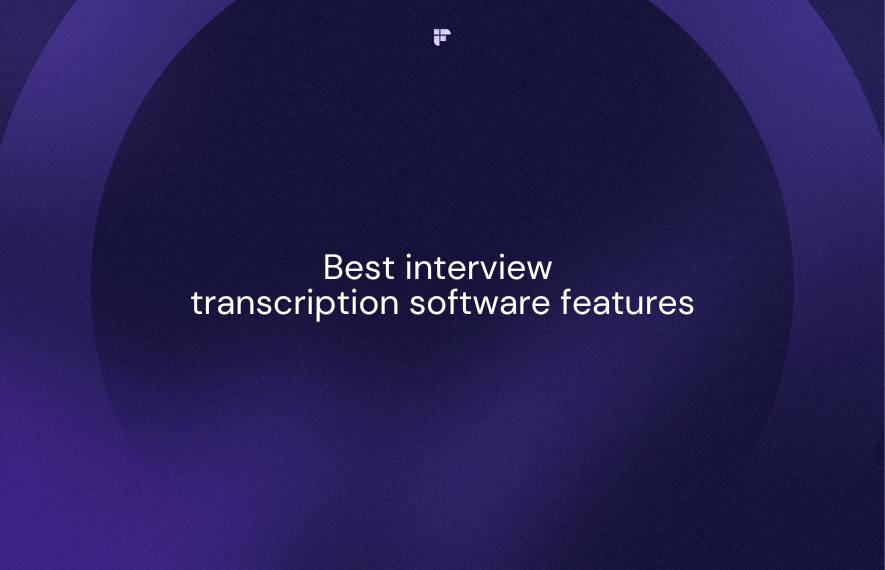
Elevate your interviews with Fireflies

Imagine conducting interviews where you can be fully present, engaging with candidates while seamlessly capturing every crucial insight. Thanks to Fireflies.ai, this is now a reality.
Streamlining interviews, one conversation at a time
Fireflies is an AI notetaker that automatically transcribes, summarizes, and analyzes your interviews, so no valuable detail slips through the cracks.
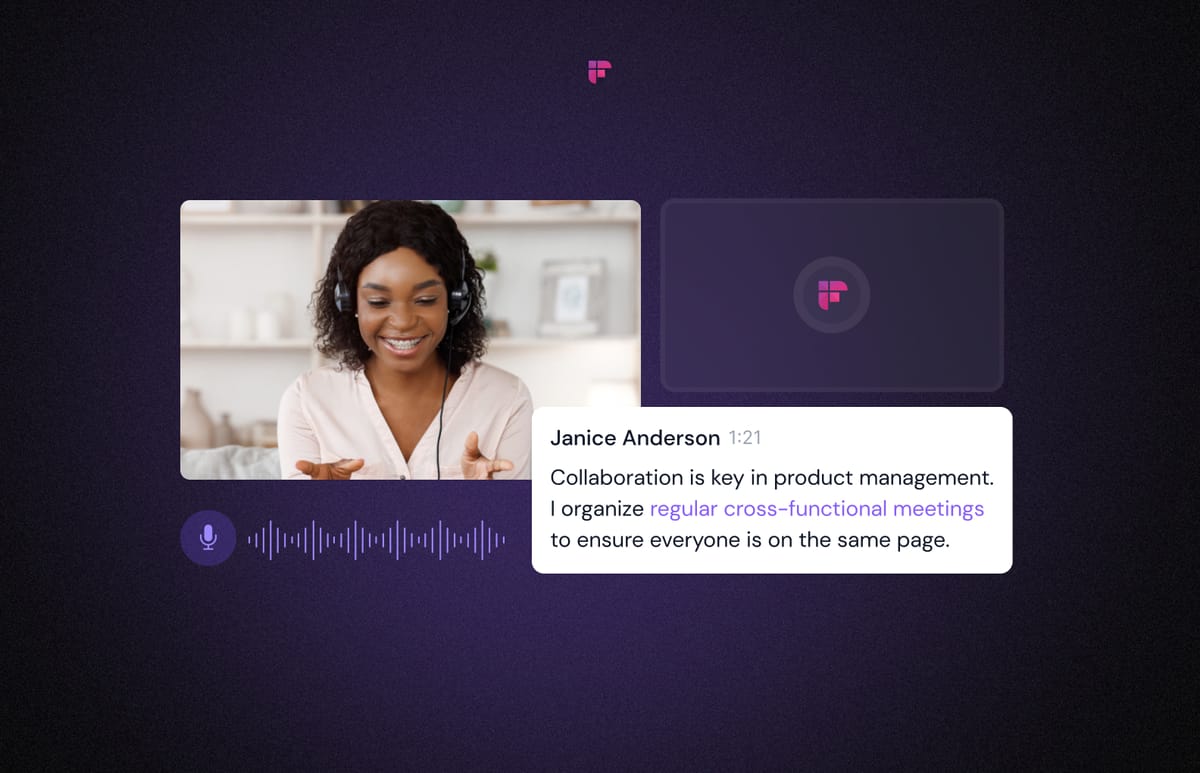
Smoother hand-offs
With transcripts and summaries readily available, hiring managers can review interviews to avoid asking the same questions. Fireflies.ai lets you create custom summaries to extract only the desired meeting information. You can also use Smart Search to filter information based on date, time, sentiment, topic, etc., or use GPT-4 powered chatbot AskFred to review interviews in minutes.
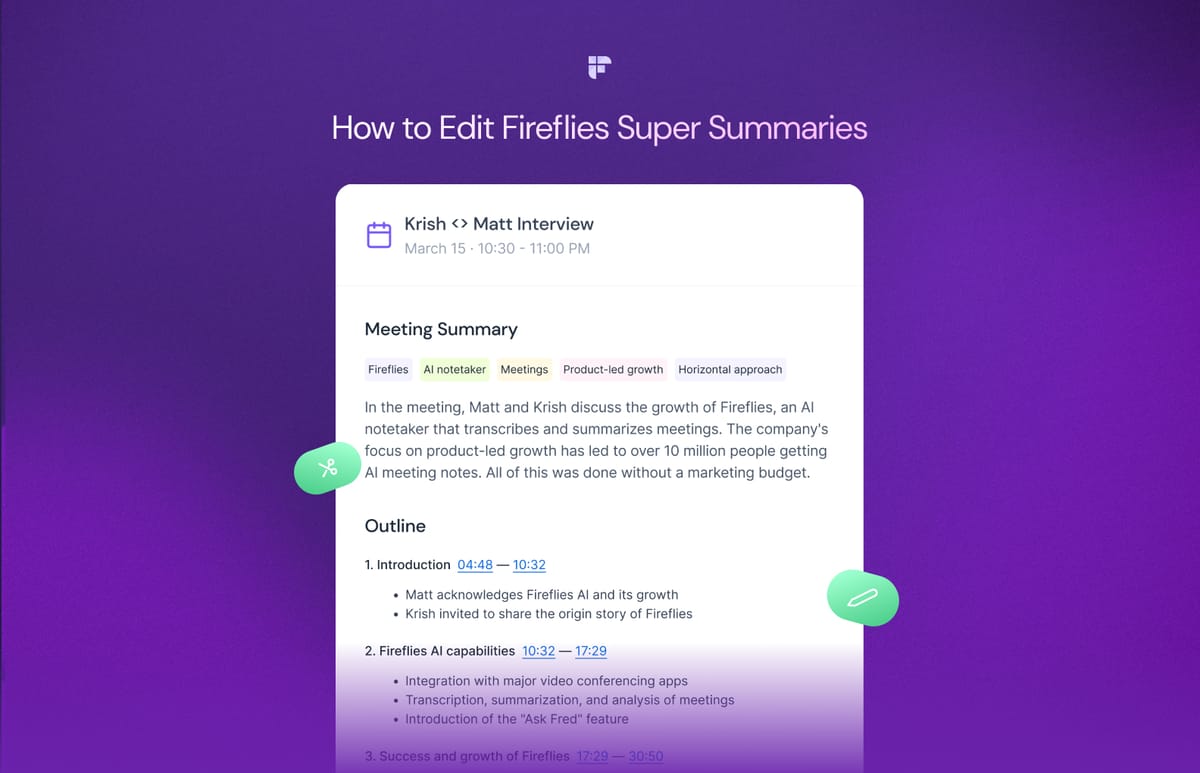
Recall details instantly
Ever wished you could magically recall that gem of an answer a candidate gave two weeks ago? Fireflies has your back. Not only does it capture interviews with impressive accuracy, but it also creates a searchable knowledge base of all your conversations. You can organize these meetings in different channels for easy referencing later.
💡 Ready to revolutionize your interviews?
The future of interviews is here, and Fireflies is leading the way. Say goodbye to the hassle of manual note-taking and embrace a more streamlined, productive hiring experience.
Conclusion
The success of any organization hinges on the strength of its team. By incorporating these 20 strategic interview questions into your candidate evaluation process, you can better understand a candidate's skills, mindset, and cultural fit. The right questions reveal a candidate's qualifications and uncover the qualities that contribute to long-term success within your organization.
Empower your hiring team with these strategic questions for a thorough and effective assessment during the interview process. Let's make interviews the exciting, insightful conversations they're meant to be!

